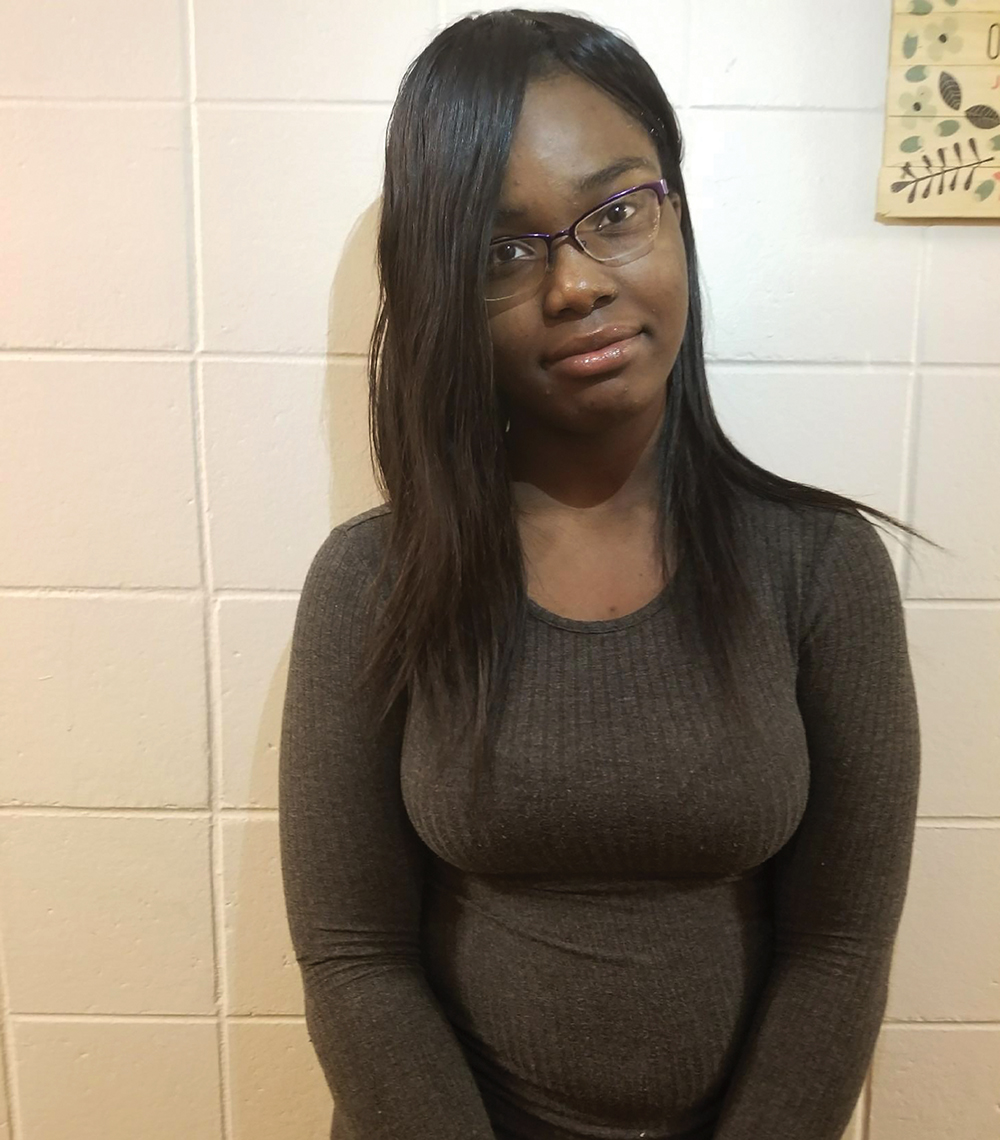Anyone who braved the cold on Monday morning for the Martin Luther King Day Coffeehouse heard first-year slam poet LaShawn Smith-Wright describe the racially-charged discomfort she felt in her Identity, Culture and Community class.
Smith-Wright is both a storyteller and a listener. As an African-American woman, experiences of racism have challenged her to think about the nature of stories. Through poetry, she strives to tell her own truth. “People don’t know my story, but always want to comment on it, without actually learning it,” she said. “I never want to be that kind of person.”In an effort to avoid telling others’ stories for them, Smith-Wright does her research before starting a piece of creative writing. After graduation, Smith-Wright hopes to spend a year as a bartender in Detroit, gathering fodder for a fiction piece she’s working on in which one of the characters is a bartender. Her rationale is that “all stories need to have something true to them.”
From 11th grade on, Smith-Wright found an audience for her story in the Detroit slam poetry community. After receiving high marks in her very first competition, a regional slam called Michigan Louder Than A Bomb, Smith-Wright dove straight into the world of youth slam poetry in Detroit. Using Martin Luther King Jr.’s phrase, Smith-Wright describes Inside Out Literary Arts Detroit as an example of “beloved community.”
It’s “the biggest family,” she said, “full of all the crazy aunts and uncles.” Even though she doesn’t live in Detroit right now, Smith-Wright still feels the encouragement and dedication of her teammates. She said, “No matter where you go in the world, you can always come back to Detroit Inside Out and you will have a home.”
In Smith-Wright’s experience, the slam poetry community is intense. “We get points for our accomplishments,” she said. The atmosphere she describes is positive, filled with unique traditions like drinking apple juice before competitions and a Harry Potter-style sorting. Because there are both group and individual pieces involved in slam poetry competition, Smith-Wright and her teammates have lots of opportunities to collaborate and give each other feedback.
Smith-Wright has daily interactions with her team’s coaches via text. One of the challenges of being removed from the community is lack of accountability to keep writing. “I have to find that motivation myself,” she said. One thing that keeps her motivated this semester is an upcoming competition in March back in Detroit. If she scores well enough, Smith-Wright will qualify for the Detroit team which will compete at the Brave New Voices International Poetry Slam next year.
This is Smith-Wright’s last year participating in youth slam poetry. She nervously anticipates the transition to adult slams, saying, “They can be really cutthroat because there is usually money involved.”
In addition to slam poetry competitions, Smith-Wright is working to get her poems published in print. “We write for the stage and for the page,” she said. She’s been successful in this arena already. She has had pieces published via “WusGood?” and “Underscore Review”. This year, Smith-Wright hopes to publish her first chapbook, for which she produced her own cover art.
One might expect a poet like Smith-Wright to find her home on GC’s campus in the English Department. However, after a semester studying creative writing in the classroom, Smith-Wright found that the structure simply was not for her. “I’m used to being around coaches all the time,” she said. The intense time commitment, close-knit community and constant feedback and reward system of Inside Out Literary Arts Detroit are more her style.
Instead of majoring in writing, Smith-Wright has chosen to study American Sign Language Interpreting. She loves the challenge of a new language and hopes to incorporate signing into her poetry. “There are deaf poetry slams,” she said excitedly. “ASL is a constant challenge,” she added, “which is good, because I came to Goshen to be forced out of my comfort zone.”
Smith-Wright’s approach to the deaf community echoes her broader manifesto about the importance of storytelling. She said, “I don’t exactly know their story, which is why I am eager to learn.”
One challenge of being at Goshen is distance from the slam poetry community. Smith-Wright said, “I come from a place where I’m constantly surrounded by poetry — I’ve always had an outlet somewhere.”
While Goshen does not have an active slam poetry community, Smith-Wright has found a kindred spirit in fellow poet Achieng Agutu, who she has gotten to know through another of her beloved communities, the Black Student Union. Smith-Wright has also met several professors who are enthusiastic about slam poetry even though they do not write or perform it themselves.
Smith-Wright eagerly anticipates slam poet Ashlee Haze coming to campus on February 3.
As she reflects further on Martin Luther King Jr.’s concept of the beloved community, Smith-Wright thinks that Goshen College has some work to do. “We’re all a victim of what we were told when we were younger,” she said. “We need to put in the effort to think for ourselves.”
She challenges the campus community to do the intersecting work of storytelling and listening to one another, asserting that “just like you didn’t get my history lesson, I didn’t get yours.”



